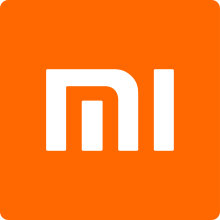Hugo Barra
Hugo Barra (born 28 October 1976 in Belo Horizonte, Brazil)[3] is a Brazilian computer scientist, technology executive and entrepreneur. From 2008 to 2013, he served in a number of product management roles at Google in London and California, including Vice President and product spokesman of Google's Android division.[4]
Hugo Barra | |
|---|---|
 | |
| Born | Hugo Barra 28 October 1976 |
| Nationality | Brazilian |
| Other names | Chinese: 虎哥 ("Tiger Brother")[1] |
| Education | Colégio Pitágoras |
| Alma mater | MIT (MS) (BS) UFMG |
| Occupation | Facebook, a vice president of Oculus VR[2] |
| Years active | 1999–present |
| Known for | Vice President, Xiaomi Vice President and product spokesperson, Google Android division |
He was vice president of the Chinese electronics company, Xiaomi, from 2014 to 2017. As of January 2017, he is Vice President of Virtual Reality at Facebook, which he joined shortly after his departure from Xiaomi.
Early life and education
Barra attended primary and secondary schools at local Colégio Pitágoras in Belo Horizonte, Brazil, and in 1995 enrolled at the Universidade Federal de Minas Gerais (UFMG), majoring in Electrical Engineering.[3] In 1996, Barra transferred to the Massachusetts Institute of Technology (MIT), graduating with a bachelor's degree in management science and masters in electrical engineering and computer science. He was class president of the class of 2000 and student keynote speaker at MIT commencement 2000.[5]
Career
Google
Barra joined American technology company Google in London in March 2008 as Group Product Manager for the Google Mobile team.[6] In 2010 Barra joined the Android team.[7]
From 2010 to 2013, Barra's role expanded to include product spokesperson for the Android team, speaking at both press conferences and Google I/O, Google's annual developer-focused conference. Barra's product involvement included the entire Android ecosystem of software and hardware, including Honeycomb, Ice Cream Sandwich, Jelly Bean and KitKat operating system launches, the Nexus 4 and Nexus 5 smartphones, the Nexus 7[8] and Nexus 10 tablets,[9] and other related products such as Google Now,[10] selected in 2013 as Popular Science's Innovation of the Year,[11] and Google Voice Search, Google's speech recognition service. He was promoted to Vice President in 2012.
Xiaomi
In September 2013, Barra left Google for Chinese electronics company Xiaomi, serving as Vice President of International.[12] The move was considered a ‘significant hire’ for Xiaomi, one of the fastest growing manufacturers in China, enhancing international legitimacy to the company by adding a key former Google Android executive to its senior management.[13]
In December 2013, Barra spoke at LeWeb tech conference in Paris, France about his impressions of the Chinese economy and the opportunity it represented for tech companies such as Xiaomi, citing China's 600 million internet users, high market caps of recent Chinese IPOs, the massive scale of the top Chinese apps' monthly active users, and the size of companies such as Alibaba's Taobao, a shopping site more than double the size of eBay and Amazon combined.[14] The talk was widely cited throughout the industry.[4]
In February 2014, Barra announced the launch of the new Redmi and Mi3 smartphones in Singapore,[15] then in India. Global expansion outside of China into surrounding emerging markets is a key initiative for Xiaomi, given the company's business model to release high performance smartphone products at an affordable consumer price, generating revenue not only from the hardware itself, but the software and internet services provided to the consumer.[16] According to Xiaomi co-founder and president Lei Jun, it is "entirely Barra’s job to figure out which region that we should enter next and how."[17] Barra has stated intentions to expand next into various countries.[18]
In March 2014, Barra visited Foxconn, a Taiwanese manufacturing company with plants in Brazil and Mexico responsible for assembling products for various tech brands, indicating plans for Xiaomi to expand into Latin America.[19]
In May 2014, Barra announced the launch of the MiPad, a 7.9 inch tablet. "We spent four years working up to the point where we thought we had the right hardware design and software capability to build a world-class tablet," Barra said. "We think we are there, finally." Barra described the release as part of Xiaomi's overall strategy to expand both its product lineup and into new international markets including Hong Kong, Taiwan, and Singapore. Barra also indicated eventual plans to enter the U.S. market.[20]
In January 2017, Barra announced his departure from Xiaomi. Barra explained his decision had been strongly motivated by a feeling of detachment from his family and the life he had built up in Silicon Valley. "What I've realized is that the last few years of living in such a singular environment have taken a huge toll on my life and started affecting my health. My friends, what I consider to be my home, and my life are back in Silicon Valley, which is also much closer to my family. Seeing how much I've left behind these past few years, it is clear to me that the time has come to return." [21]
There are reports that quoted Barra saying that his resignation was prompted by health reasons and some analysts noted that the departure came amid Xiaomi's declining sales in China.[22][23] On the other hand, global expansion has been successful. Around the time of his resignation, Xiaomi announced that it has exceeded US$1 billion in revenue from the Indian market alone.[23]
Facebook
He announced in a Facebook post on 25 January 2017 that he would be joining Facebook as Vice President of virtual reality, writing:
"I’m excited to share my next adventure as I return to Silicon Valley—in a couple of months I'll be joining Facebook as VP of virtual reality (VPVR!) and lead the Oculus team. Xiaomi CEO Lei Jun always says that the highest calling of an engineer is to make technology breakthroughs quickly and readily available to the widest possible spectrum of humanity. That will be my mission at Facebook and I look forward to building the future of immersive technology with Mark Zuckerberg, Brendan Trexler Iribe, Mike Schroepfer, and the visionaries in the Oculus team."[24]
Based on his early pronouncements, Barra appears to be focusing on the development of standalone VR headsets as well as social VR. During an appearance at the 2018 Consumer Electronics Show (CES), he described the technology as "a product category that will help us bring the most number of people into VR and really start unlocking these opportunities for social presence."[25] During the event, Barra announced Oculus' standalone VR headset called Oculus Go, with Xiaomi as global hardware partner.
Honors and awards
In 2011, Barra was ranked #23 in Wired Magazine's Wired 100.[26] In 2013, Business Insider's Silicon Valley 100 included Barra at #92.[27] Brazil's Época magazine ranked Barra among the most influential Brazilians in both 2011[28] and 2013.[29]
References
- "小米虎哥:手机在线购买在新兴市场日益流行". hk.on.cc (in Chinese). 30 July 2015. Retrieved 26 March 2016.
- Hugo Barra left Xiaomi to run VR at Facebook.TheVerge.2016-01-26.[2016-01-26].
- "The Brazilian who runs Android". Época. Archived from the original on 13 October 2014. Retrieved 9 June 2014.
- "This Famous Google Exec Quit His Job To Work In China — And He's Been Totally Blown Away By What He Found". Business Insider.
- "Students and speakers gear up for Commencement 2000". MIT News.
- "Hugo Barra". The Guardian.
- "Speaker Bios". Google. Archived from the original on 27 July 2013.
- "Google Unveils a New, Nicer, Pricier Nexus 7 Tablet". Time.
- "Hugo Barra: where are the Android tablets of HTC One-like quality?". Android Authority.
- "Android Director: 'We Have the Most Accurate, Conversational, Synthesized Voice in the World'". Wired.
- "Innovation Of The Year: Google Now". Popular Science.
- "Exclusive: Hugo Barra Talks About His Future at Xiaomi and Why He Really Left Google". All Things D.
- "Xiaomi confirms it has hired Google's Hugo Barra, who will take up VP Global role from October". The Next Web.
- "Everything you need to know about Chinese tech in one 30-minute video". Quartz.com.
- "Can China's coolest phone maker take Xiaomi-mania international? We ask VP Hugo Barra". The Next Web.
- "Here's why you should care about rising Chinese smartphone firm Xiaomi". The Next Web.
- "Xiaomi co-founder on why ex-Google exec Barra and its own firmware are key to international success". The Next Web.
- "Xiaomi's Hugo Barra: True world phones in 2 years, Android all the way". CNET.
- "Hugo Barra visits Foxconn, teases Xiaomi launches across Latin America". techinasia.com.
- "Ex-Google Whiz Barra's Influence Showing at Xiaomi". thevarguy.com.
- "Hugo Barra is leaving Xiaomi". theverge.com.
- Horwitz, Josh (26 January 2017). "Hugo Barra is leaving Xiaomi to lead Facebook's virtual reality division". Quartz. Retrieved 30 August 2018.
- Soo, Zen (23 January 2017). "Hugo Barra to leave Xiaomi, return to Silicon Valley from Beijing". South China Morning Post. Retrieved 30 August 2018.
- https://www.facebook.com/hbarra76/posts/10154020362016612
- Lee, Nicole (16 January 2018). "Facebook's Hugo Barra says standalone headsets are key to social VR". Engadget. Retrieved 30 August 2018.
- "2nd annual Wired 100". Wired.co.uk.
- "The 100 Biggest Stars In Silicon Valley". Business Insider.
- "Época Magazine: the 100 most influential Brazilians in 2011". Época Magazine. Archived from the original on 16 February 2017. Retrieved 9 June 2014.
- "Época Magazine: the 100 most influential Brazilians in 2013". Época Magazine.
